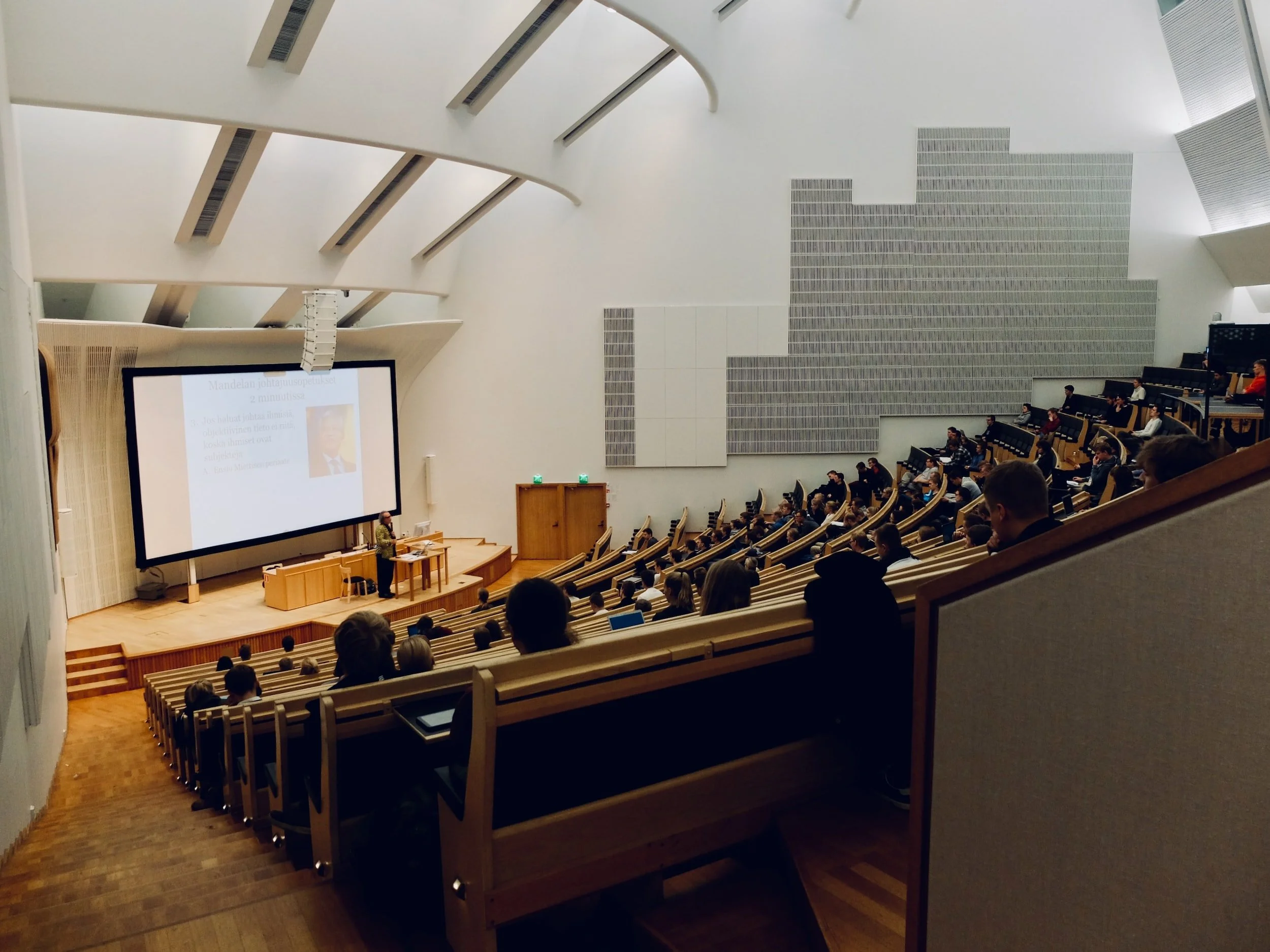On October 2, 2023, the U.S. Supreme Court indicated that it will not hear the WashTech case (Washington Alliance of Tech. Workers v. Department of Homeland Security) that challenged the legality of the Department of Homeland Security’s authority to create and maintain its Optional Practical Training (OPT) program for international students (F-1). This puts the case to rest once again, and leaves in place the lower courts' decisions upholding the program. The court’s decision to leave OPT intact resolves a major area of uncertainty for international students and preserves an important tool—applied learning—for student advancement and U.S. competitiveness in the global economy.
DHS Expands List of Fields Eligible for STEM OPT
The U.S. Department of Homeland Security added eight fields of study to the latest revision of its STEM (science, technology, engineering, and mathematics) Designated Degree Program List on July 12. Among the new fields are landscape architecture; institutional research; mechatronics, robotics, and automation engineering technology/technician; composite materials technology/technician; linguistics and computer science; developmental and adolescent psychology; geospatial intelligence; and demography and population studies. Full descriptions of these fields can be found in the Federal Register notice.
International students who earn degrees in fields on the list qualify for the STEM Optional Practical Training (OPT) program, which allows F-1 students to work in the United States for 3 years instead of the 1 year allowed under the standard OPT program. The STEM OPT list was last expanded in January 2022, when 22 fields were added. Notably, the DHS STEM OPT Designated Degree Program List is an exclusive list: CIP codes that are not on this list are not eligible for STEM OPT.
There is an annual deadline of August 1 for interested parties to nominate additional CIP codes for the DHS STEM Designated Degree Program List. The next annual deadline is August 1, 2023.
USCIS Announces June 2023 Phase-In of Premium Processing for Changes of Status to F, M, J Status
Premium Processing Expands to F-1 Students' I-765s Today, March 6, with Additional Expansion to Follow
USCIS Announces Final Phase of Premium Processing Expansion for EB-1 and EB-2 and Future Expansion for Certain F-1 Students and Exchange Visitors
DHS Interim Final Rule Removes Obsolete Procedures and Requirements Related to F, J, and M Nonimmigrants
On December 12, 2022, the Department of Homeland Security (DHS) published an interim final rule (IFR) in the Federal Register, titled Removal of Obsolete Procedures and Requirements Related to F, J, and M Nonimmigrants. The rule became effective on the date of publication, December 12, 2022; you can read the rule at 87 FR 75891 (December 12, 2022)
According to a December 8, 2022 Broadcast Message from the Student and Exchange Visitor Program (SEVP), the rule was published to "remove obsolete information, correct typographical errors, update references and citations, and make minor clarifications to regulatory language. These changes are administrative, not substantive, and are necessary to eliminate confusion, improve clarity, and remove obsolete procedures and requirements used before the implementation of the Student and Exchange Visitor Information System (SEVIS) or during the transition to SEVIS. This rulemaking does not raise existing costs and places no additional burden on F and M students, J exchange visitors, SEVP-certified schools or designated programs."
The rule is being published as an interim final rule, which means it is immediately effective as of December 12, 2022, but also gives the public 30 days to submit comments despite the rule already being in effect. The Federal Register notice contains information on how to submit comments.
The amendments remove references to obsolete procedures meant for non-SEVIS schools in the 2003 transition to SEVIS, remove references to "the Service" (which denoted INS, the legacy Immigration and Naturalization Service), and make other updates that reflect the new structures of DHS and SEVIS. One positive semi-substantive change is that the SEVP will make permanent the current COVID policy that allows schools to collect electronic signatures on Form I-17.
ACICS Loss of Recognition as Accreditor May Affect Certain F-1 Students, H-1B Workers, and I-140 Applicants
D.C. Appeals Court Finds in Favor of DHS in WashTech OPT Litigation
Nonimmigrant Visa Interview Waiver Authorization Expanded and Extended
On December 23, 2021, the Secretary of State extended through the end of 2022 existing policy guidance for visa interview waivers for certain nonimmigrant visa (NIV) applicants (with minor modifications) and expanded the authorization to include additional categories of NIV applicants, as follows:
Categories NEWLY eligible for discretionary Visa Interview Waiver consideration (H-1, H-3, H-4, L, O, P, and Q):
Consular officers were given the discretionary authority to waive the visa interview requirement for individual petition-based H-1, H-3, H-4, L, O, P, and Q applicants who were previously issued any type of visa and:
who have never been refused a visa unless such refusal was overcome/waived; and
who have no apparent ineligibility or potential ineligibility.
Consular officers also have the discretion to waive the visa interview requirement for first- time individual petition-based H-1, H-3, H-4, L, O, P, and Q applicants who:
are citizens or nationals of a country that participates in the Visa Waiver Program (VWP), provided:
they have no apparent ineligibility or potential ineligibility; and
have previously traveled to the United States using an authorization obtained via the Electronic System for Travel Authorization (ESTA).
Categories with EXTENDED eligibility for discretionary Visa Interview Waiver consideration (F, M, J (academic) and H-2) through the end of 2022:
Previously approved policies authorizing consular officers to waive the visa interview requirement for F, M, academic J, and H-2 visa applicants have been extended (with minor modifications). The current policies for F, M, and academic J visa applicants are as follows:
Consular officers have the discretion to waive the visa interview requirement for F, M, and academic J Visa applicants who:
were previously issued any type of visa and:
who have never been refused a visa, unless that refusal was subsequently overcome or a waiver of ineligibility was obtained; and
for whom there is no indication of potential visa misuse or ineligibility;
or
are first-time F, M, and academic J visa applicants who/whose:
are citizens or nationals of Visa Waiver Program (VWP) participating countries;
have no prior ESTA denials;
have previously traveled to the United States using an authorization obtained via ESTA to qualify;
visa applications reveal no derogatory or potentially derogatory information; and
have no indication of potential visa misuse or ineligibility.
Certain H-2 (temporary agricultural and non-agricultural workers) applicants also remain eligible through the end of 2022 under previous authority allowing for waiver of interviews, as do applicants renewing any visa within 48 months of expiration.
How to Apply for an Interview Waiver:
As these waivers are to be granted individually at the discretion of local DOS consular officers, applicants are advised to check the website of the relevant U.S. embassy or consulate to confirm the level of services currently offered and to find guidelines for applying for a visa without an interview.
Note: To be considered for an interview waiver, an applicant must be applying for a visa at a U.S. consular office in their country of nationality or residence.
DOS Revises FAM Provisions on International Students' Ties to Their Home Countries
On December 20, 2021, the U.S. Department of State (DOS) updated the Foreign Affairs Manual (FAM), which governs DOS operations and is used by consular officers in determining visa eligibility, to restore helpful guidance related to students seeking to study in the U.S. While acknowledging that F-1 or M-1 students must possess a foreign residence that they have no intention of abandoning and must have the present intention to depart the U.S. upon completion of their studies, the new guidance recognizes that young students do not typically have the strong ties to their home countries (e.g., family, property, employment, etc.) that is typical of other temporary visa applicants. The revisions should help deter denials of student visas by consular officers based on speculative conclusions about applicants’ future plans and possible immigrant intent.
DHS Adds 22 Fields to STEM Designated Degree Program List
A Federal Register notice published January 21, 2022 announced that DHS "is amending the DHS STEM Designated Degree Program List by adding 22 qualifying fields of study and a corresponding Department of Education Classification of Instructional Programs (CIP) code for each." See 87 FR 3317 (January 21, 2022). This critical list controls which F-1 students are eligible to apply for a 24-month extension of their Optional Practical Training (OPT).
The additions span a number of fields, from Bioenergy, to Human-Centered Technology Design, Climate Science, and Business Analytics, and is a welcome step for international education.
The STEM Designated Degree Program List is used to determine whether a degree obtained by certain F-1 Students qualifies as a science, technology, engineering, or mathematics (STEM) degree, as required for the F-1 Student to be eligible to apply for a STEM Optional Practical Training (OPT) extension. The STEM OPT extension is a 24-month extension of OPT available to F-1 Students who have completed 12 months of OPT and received a degree in an approved STEM field of study as designated by the STEM list.
SEVP Formally Adopts Use of Electronic Signatures and Transmission for Form I-20
On October 12, 2021, the Student and Exchange Visitor Program provided guidance formally adopting use of electronic signatures and transmission for Form I-20. Electronic signatures can be done with software programs or be digitally reproduced. Students should print electronically transmitted forms for visa interviews and arrival at U.S. ports of entry.
New under this guidance:
This new guidance is permanent, i.e., it is no longer just a COVID flexibility. The guidance says: "SEVP has formally adopted the use of electronic signatures and transmission for the Form I-20." This was done in "response to Executive Order 14012, 'Restoring Faith in Our Legal Immigration Systems and Strengthening Integration and Inclusion Efforts for New Americans," in which "SEVP identified recommendations to increase efficiency in the immigration system and reduce unnecessary burdens."
Schools may "transmit the Form I-20 visa secure platform, such as a school portal or other secure site, to F and M students and their dependents." Under the original COVID guidance, schools could only "electronically send Forms I-20 to student email addresses listed in SEVIS." It is unclear from the wording of the new Policy Guidance whether schools that choose to email Forms I-20 are limited to the student's email listed in SEVIS.
USCIS Extends Flexibilities to Certain Applicants for OPT Impacted by Receipt Delays (Mar. 1, 2021)
USCIS has announced flexibilities for certain foreign students affected by delayed receipt notices for Form I-765, Application for Employment Authorization. These flexibilities apply only to applications received on or after Oct. 1, 2020, through May 1, 2021, inclusive.
USCIS has experienced significant delays in issuing receipt notices for Form I-765 for optional practical training (OPT) for F-1 students, and is permitting the following flexibilities to assist certain applicants for OPT impacted by the delays.
14-month OPT Period Flexibilities
F-1 students may participate in up to 12 months of post-completion OPT, which must be completed within 14 months from the end of their program. Due to the delays at the lockbox, some applicants may only be eligible for a shortened period of OPT within that 14-month period.
To allow F-1 students to complete the full period of requested OPT (up to 12 months), USCIS will allow the 14-month period to commence from the date of approval of the Form I-765 for applications for post-completion OPT.
As of February 26, 2021, USCIS will approve applications for post-completion OPT with validity dates reflecting the same amount of time originally recommended by the designated school official (DSO) on the Form I-20, Certificate of Eligibility for Nonimmigrant Student Status.
F-1 students requesting post-completion OPT who receive an approval of Form I-765 for less than the full amount of OPT time requested (not to exceed 12 months) due to the requirement that the OPT be completed within 14 months of the program end date may request a correction of the EAD due to USCIS error. USCIS will issue a corrected EAD with a new end date, as requested, to cover the full amount of OPT time recommended in the original application.
Refiling Following Rejection
Applicants for OPT must file the Form I-765 during certain timeframes. However, USCIS has recognized that due to the lockbox delays, some applicants who timely filed Form I-765 for OPT and whose applications were later rejected are unable to timely refile within the required application timeframes.
USCIS will accept a refiled Form I-765 for OPT and STEM OPT as filed on the original filing date if:
The original, timely filed application was received on or after Oct. 1, 2020, through May 1, 2021, inclusive; and
USCIS subsequently rejected it.
Refiled applications must be received by May 31, 2021, for USCIS to treat the application as though filed on the original received date.
Applicants refiling a Form I-765 for OPT or STEM OPT do not need to obtain a new Form I-20 with an updated OPT recommendation from the DSO, as long as they originally submitted an application for post-completion OPT within 30 days of the DSO’s recommendation or an application for STEM OPT within 60 days of the DSO’s recommendation as required by the regulations.
Applicants refiling an application should include a copy of the rejection notice to facilitate review of the case.
Missing or Deficient Signatures
Applications with missing or deficient signatures are generally rejected at the lockbox. This policy remains unchanged. However, if the lockbox accepts a Form I-765 application for OPT or STEM OPT with a missing or deficient signature, USCIS will issue a Request for Evidence rather than deny the application, to give the applicant the opportunity to respond and provide the necessary signature or correct the deficiency. USCIS encourages applicants filing Form I-765 to review the form instructions on its website to ensure their application is complete before filing it.
If you are a student seeking OPT or STEM OPT and have been impacted by the receipt delays at USCIS or a rejection as described above, speak with your international advisor and should you need assistance requesting the flexibilities above, contact us.
District Court Denies WashTech Bid to Toss Optional Practical Training for International Students (Nov. 30, 2020)
The Washington Alliance of Technology Workers union (WashTech) has been litigating in the U.S. District Court for the District of Columbia since 2016 against both the 2016 24-month STEM Optional Practical Training (OPT) rule and the standard 12-month post-completion OPT rule, raising many of the same substantive issues it raised in a prior, unsuccessful suit against the 2008 17-month STEM OPT rule.
In a November 30, 2020 order, the district court denied Washtech’s motions of summary judgement and granted the Department of Justice’s cross-motions for summary judgement. An opinion explaining the reasons for the court’s decision is expected in the next 60 days. Importantly, the court’s order is not a final order subject to appeal, and thus this stage of litigation is not yet ended. If the court's eventual final judgement is—as expected—consistent with the order on the motions and goes against Washtech, Washtech could file a notice of appeal within 60 days of the final judgement.










